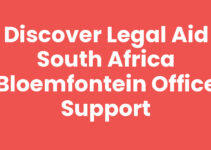Language is an ever-evolving entity that reflects the culture, lifestyle, and identity of its speakers. In South Africa, where diverse languages and cultures coalesce, Bloemfontein hosts a unique set of slang words that speak volumes about its residents. From vibrant youth culture to colloquial expressions used in daily life, understanding Bloemfontein slang words can open doors to better communication and connection with locals.
Understanding Bloemfontein Slang Words: What You Need to Know
Bloemfontein, the capital city of the Free State province, is often referred to as the “City of Roses”. Its rich history and cultural tapestry contribute to a vibrant slang lexicon, commonly utilized by its residents. Slang often evolves from interactions among various societal groups, embodying the playful yet serious facets of daily discourse.
To truly grasp the essence of Bloemfontein slang, it is essential to recognize a few key terms and phrases commonly used in the city:
Key Bloemfontein Slang Words
- Jol: Meaning a party or celebration; it’s what people do when they want to have fun!
- Doek: A headscarf that’s often used by women, but it can also symbolize a certain cultural pride.
- Shame: This is used to express sympathy or pity, often in endearing contexts.
- Bakkie: A pickup truck; it’s commonly used in conversation when discussing transport or vehicle-related matters.
- Kak: A harsh way of saying something is bad or unpleasant; it can also be interchanged as a verb.
- Ag: A versatile word that can be used to express resignation, agreement, or annoyance, depending on the context.
- Braai: A barbecue, which signifies not just cooking meat but also gradually builds a social event around it.
These words don’t just have a definition; they carry emotions, stories, and cultural significance. To effectively blend into the Bloemfontein community, knowing when and how to use these words is just as crucial.
Check This: Explore Military Road, Bloemfontein: A Historical Insight
Benefits of Understanding Local Slang
Learning and using Bloemfontein slang words offers various social benefits. Here are some crucial advantages:
- Enhanced Communication: Understanding the slang facilitates smoother communication with the locals, leading to more meaningful interactions.
- Cultural Appreciation: Familiarizing oneself with local language nuances increases respect and appreciation for the culture.
- Building Connections: Using slang appropriately can make one more relatable and approachable among Bloemfontein’s youth and local communities.
- Social Integration: Being able to converse in the local dialect can help expats and visitors feel more at home.
Read Also: Substance Abuse Rehabilitation Centres Free State, Bloemfontein
Important Considerations When Using Slang
While understanding Bloemfontein slang words is essential, using them requires certain considerations:
- Context Matters: Certain slang might be suitable among friends but inappropriate in formal settings. Always assess the environment before using slang.
- Be Respectful: Some phrases can be deeply rooted in cultural identities and should be used with care to avoid offending anyone.
- Stay Updated: Slang evolves, and new terms emerge regularly. Keep yourself updated with current slang to stay relevant.
In conclusion, delving into the world of Bloemfontein slang words enriches any interaction you have in the city. By embracing the local lingo, you not only learn to communicate more effectively but also show respect for the culture and community. Remember, language is a powerful tool; use it wisely!
You Might Also Like: Top Packing and Wrapping Services in Bloemfontein for Move
Frequently Asked Questions
What are some common Bloemfontein slang words?
Common terms include 'jol' (party), 'shame' (sympathy), and 'braai' (barbecue).
How can I learn more about Bloemfontein slang?
Engage with locals, participate in social gatherings, and explore online resources and social media.
Is slang appropriate in formal settings?
Generally, slang is best used in informal contexts; avoid using it in professional situations.



